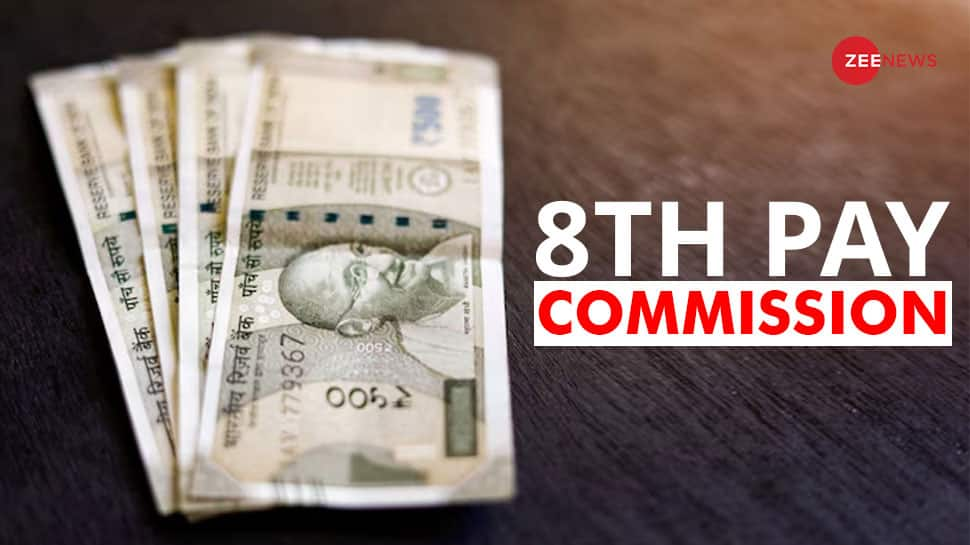 |
|
The Indian government's potential establishment of the 8th Pay Commission by April is a significant development for millions of government employees across the country. The proposed commission holds the potential to drastically reshape the compensation structure for these individuals, impacting their financial well-being and, consequently, the national economy. The timing of the announcement, suggesting a potential implementation within two months, indicates a swift and decisive approach by the government. This urgency highlights the importance placed on addressing employee compensation concerns and underscores the political implications of such a significant financial undertaking. The impact of the 8th Pay Commission transcends the immediate financial benefits for government employees; it ripples through various aspects of society.
The process leading to the commission's potential formation involves meticulous steps aimed at ensuring transparency and fairness. The draft terms of reference (TOR) have been circulated to key ministries, namely defense, home affairs, and the Department of Personnel and Training (DoPT). These ministries play pivotal roles in shaping the government's overall financial strategy and understanding the specific compensation needs within their respective sectors. Their feedback on the draft TOR is crucial, as it will help fine-tune the commission's mandate and scope. The collaborative input from these ministries represents a vital step toward a comprehensive and well-informed decision-making process. The importance of incorporating diverse perspectives cannot be overstated, ensuring the resulting recommendations are both equitable and realistic.
Following the receipt and consideration of feedback from the ministries, the final TOR will be formulated. This crucial document will outline the commission's responsibilities, including the methodology for determining salary revisions, allowances, and other benefits. The detailed guidelines provided in the TOR will guide the commission's work and ensure its recommendations align with the government's overall fiscal policies and economic objectives. Once finalized, the TOR will need to secure Cabinet approval, signifying the government's formal commitment to the establishment of the 8th Pay Commission. This Cabinet approval marks a critical juncture in the process, signifying the culmination of extensive deliberations and the formal authorization to proceed with the implementation of the commission's work. The Cabinet's decision will be closely watched by government employees nationwide and analyzed by economists and political analysts alike.
The financial ramifications of the 8th Pay Commission are substantial and multifaceted. A significant salary increase for millions of government employees would inevitably impact the government's budget, potentially requiring adjustments to other spending priorities. Economists and financial analysts will be carefully analyzing the potential fiscal burden, evaluating its impact on inflation, public debt, and the overall economic stability of the country. The commission's recommendations will be scrutinized for their fiscal viability and their alignment with the government's broader economic goals. Balancing the needs of government employees with the fiscal health of the nation will be a delicate balancing act for policymakers. Moreover, the potential for a ripple effect on the private sector, where comparable salary adjustments may be demanded, further complicates the financial considerations.
The establishment of the 8th Pay Commission is not just a matter of financial adjustments; it also has significant political implications. The government's commitment to addressing the concerns of its employees can influence public opinion and electoral outcomes. The process of setting up the commission and the ultimate recommendations made will be closely scrutinized for any signs of political maneuvering or bias. The government must navigate the complexities of the situation carefully, balancing the need to satisfy employee demands with the responsibility of managing public finances effectively. The transparent and fair implementation of the commission's work will be vital to maintaining public trust and confidence in the government's ability to manage its affairs.
In conclusion, the potential establishment of the 8th Pay Commission by April represents a significant juncture in the Indian political and economic landscape. The process, from the circulation of the draft TOR to the eventual Cabinet approval, will be meticulously followed and rigorously analyzed. The ultimate impact, encompassing the financial burdens and political consequences, will be felt across the nation for years to come. The 8th Pay Commission’s recommendations will define the compensation landscape for millions, shaping their livelihoods and influencing the country's economic trajectory. Therefore, transparency, fairness, and a carefully considered approach are paramount to ensuring a positive and sustainable outcome for all stakeholders.
